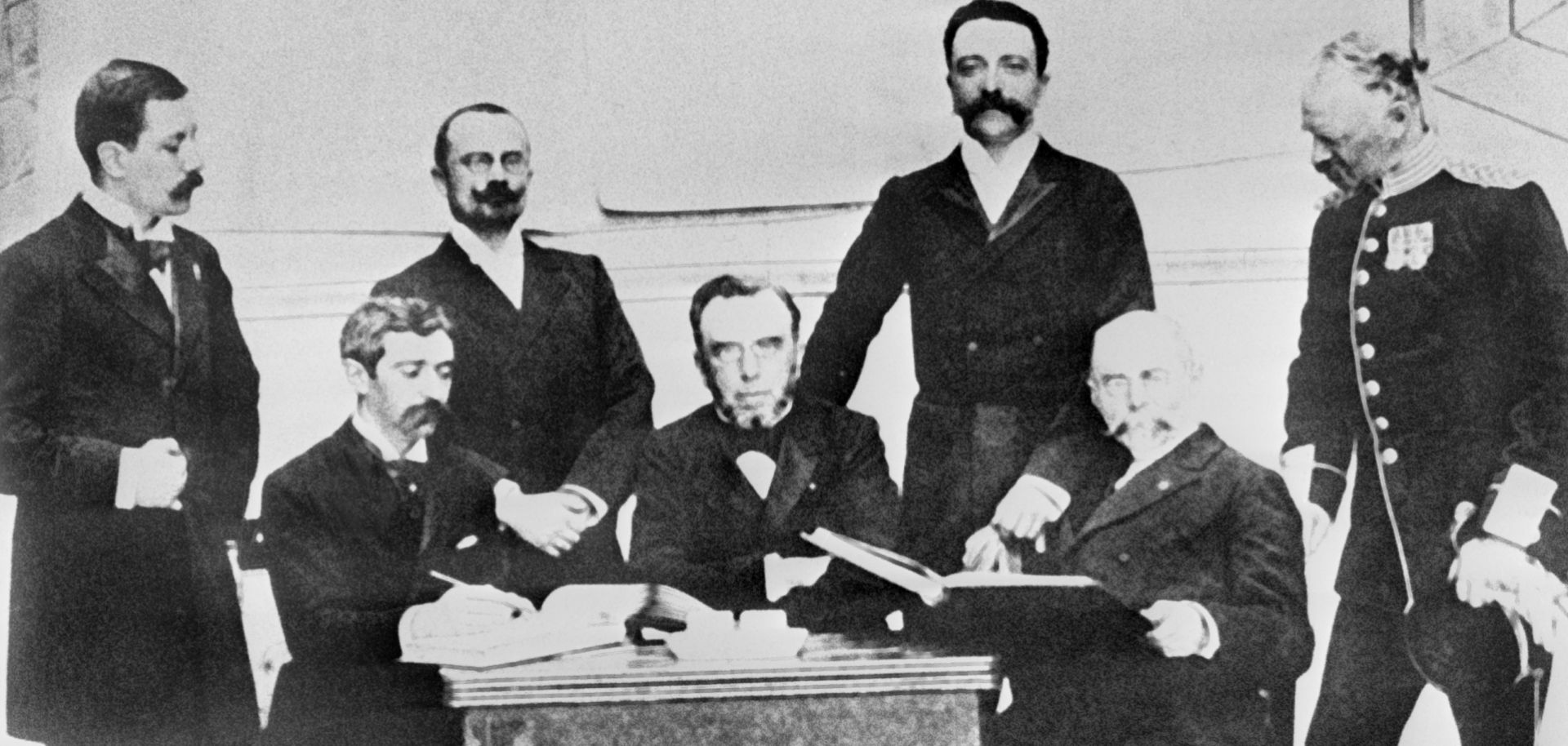GLOBAL PERSPECTIVES
War and Peace and International Sport

Aug 6, 2018 | 10:00 GMT

French educationalist and Olympics founder Pierre de Coubertin (sitting, left) poses with members of the first International Olympic Committee in Athens, Greece, in 1896. Standing, from left are Dr. Willibald Gebhard (Germany), Jiri Guth-Jarkovsky (Bohemia), Ferenc Kemeny (Hungary), General Victor Balck (Sweden); sitting in the middle, next to Pierre de Coubertin are Demetrios Vikelas (Greece), first IOC president, and General Boutowsky (Russia).
(STR (FILES)/AFP/Getty Images)
Highlights
- Cooperation, diplomacy and friendly national competition were among the ideals touted by Pierre de Coubertin, the French aristocrat who was the driving force of the modern Olympic movement.
- Financial and organizational woes hampered the first few Olympic events, but rivalries at the 1908 London Games set a nationalist template that drew the attention of fans.
- While international sport can serve as a catalyst for diplomacy under the right conditions, sometimes the competitions can aggravate tensions.
Subscribe Now
SubscribeAlready have an account?
